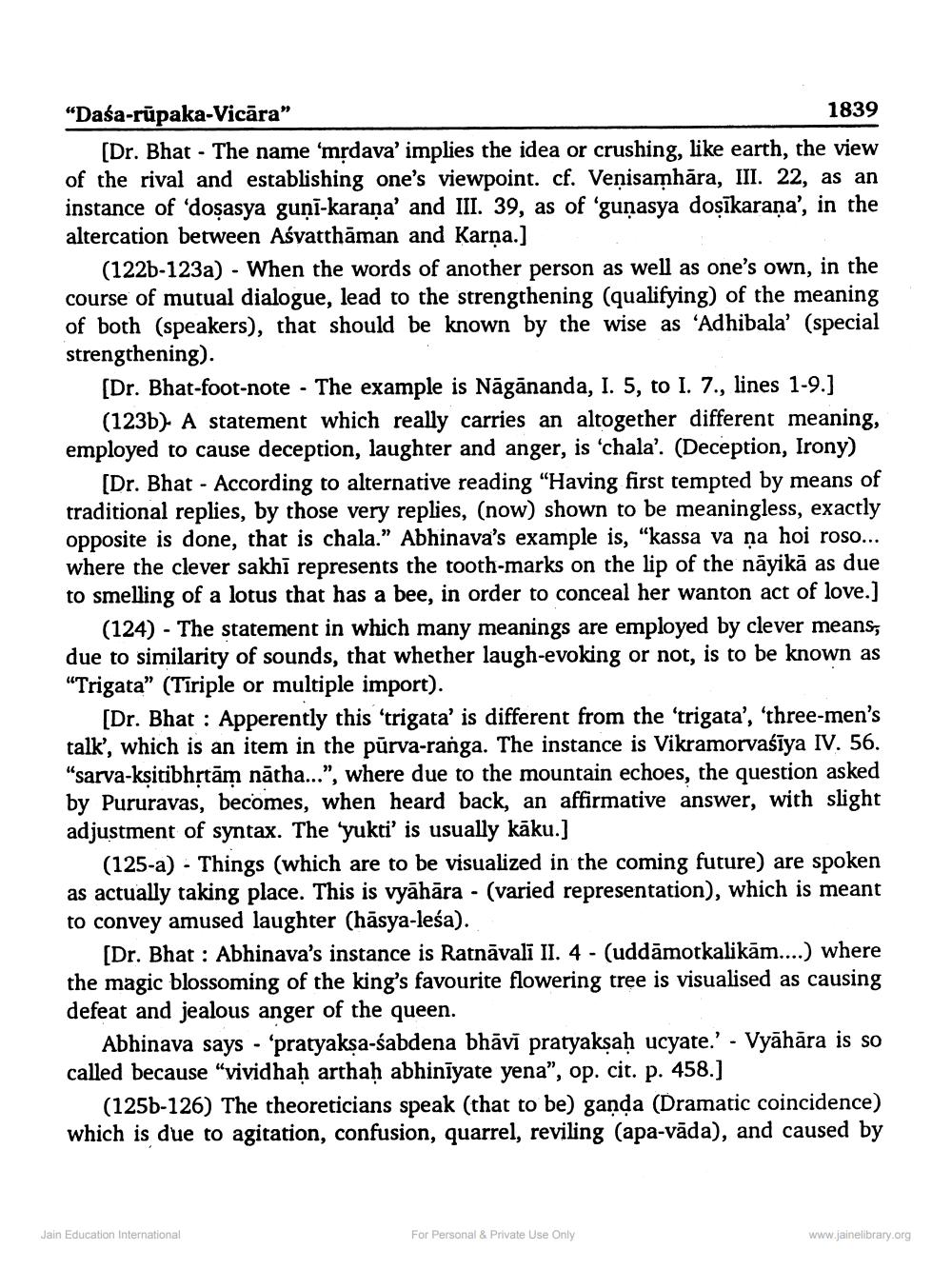________________
“Daśa-rupaka-Vicāra”
1839 (Dr. Bhat - The name 'mrdava' implies the idea or crushing, like earth, the view of the rival and establishing one's viewpoint. cf. Venisamhāra, III. 22, as an instance of 'dosasya guni-karana' and III. 39, as of 'gunasya doșīkarana', in the altercation between Aśyatthāman and Karna.]
(1226-123a) - When the words of another person as well as one's own, in the course of mutual dialogue, lead to the strengthening (qualifying) of the meaning of both (speakers), that should be known by the wise as 'Adhibala' (special strengthening).
[Dr. Bhat-foot-note - The example is Nāgānanda, I. 5, to I. 7., lines 1-9.]
(123b) A statement which really carries an altogether different meaning, employed to cause deception, laughter and anger, is 'chala'. (Deception, Irony)
[Dr. Bhat - According to alternative reading "Having first tempted by means of
ditional replies, by those very replies, (now) shown to be meaningless, exactly opposite is done, that is chala.” Abhinava's example is, "kassa va na hoi roso... where the clever sakhi represents the tooth-marks on the lip of the nāyikā as due to smelling of a lotus that has a bee, in order to conceal her wanton act of love.]
(124) - The statement in which many meanings are employed by clever means, due to similarity of sounds, that whether laugh-evoking or not, is to be known as “Trigata” (Tiriple or multiple import).
[Dr. Bhat : Apperently this 'trigata' is different from the 'trigata', 'three-men's talk', which is an item in the pūrva-ranga. The instance is Vikramorvašīya IV. 56. "sarva-kşitibhrtām nātha...", where due to the mountain echoes, the question asked by Pururavas, becomes, when heard back, an affirmative answer, with slight adjustment of syntax. The yukti' is usually kāku.]
(125-a) - Things (which are to be visualized in the coming future) are spoken as actually taking place. This is vyāhāra - (varied representation), which is meant to convey amused laughter (hāsya-leśa).
[Dr. Bhat : Abhinava's instance is Ratnāvali II. 4 - (uddāmotkalikām....) where the magic blossoming of the king's favourite flowering tree is visualised as causing defeat and jealous anger of the queen.
Abhinava says - ‘pratyaksa-śabdena bhāvī pratyaksaḥ ucyate.' - Vyāhāra is so called because “vividhaḥ arthaḥ abhinīyate yena”, op. cit. p. 458.]
(1256-126) The theoreticians speak (that to be) ganda (Dramatic coincidence) which is due to agitation, confusion, quarrel, reviling (apa-vāda), and caused by
Jain Education International
For Personal & Private Use Only
www.jainelibrary.org




